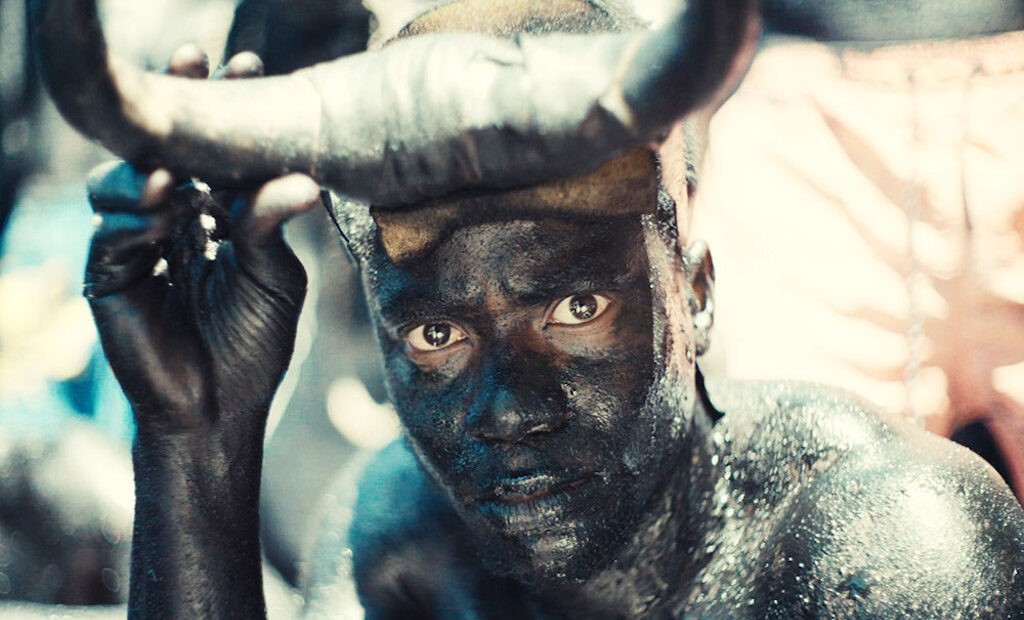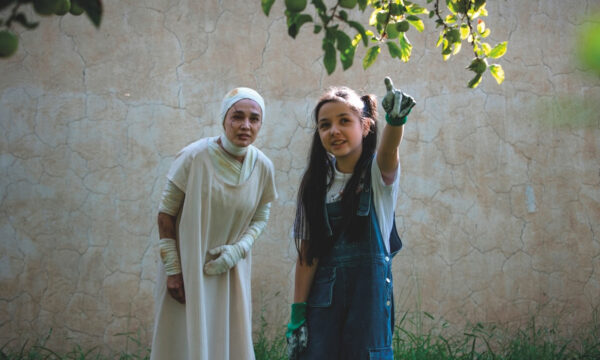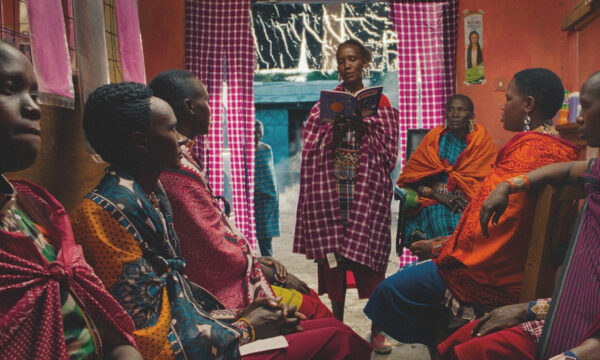Kanaval: A People’s History of Haiti in Six Chapters

Each year, during the lead up to Mardi Gras, the Island of Haiti celebrates its history and the vibrancy of its culture. The pre-Lenten carnival is an epic national event which, to exemplify its significance in the fabric of Haitian culture, is funded in part by its government. It is more, however, than simply a celebratory respite for the Haitian people: it is a ventricle carrying the island’s consciousness to the vital organ of national remembrance – predominantly, as framed by Leah Gordon and Eddie Hutton Mills in Kanaval – a memorial of its bitter colonial past.
Split into six chapters, Kanaval hones in on the city of Jacmel and its people’s preparations for their own festivities. Interweaving solicitously compiled archival footage with beautifully sweeping wide-framed impressions (shot by Joel Honeywell) of locals adorned with feathers, face paint and optically imposing papier mâché masks, the film traces the specific traditions of Haitian carnival. The six sections look at miscellaneous yet organically linked parade troupes, each reflecting an aspect of the island’s history and reckoning with the scars left behind, from brutal colonisation (which began with Christopher Columbus’s “discovery” of the island in 1492 – a word challenged by locals, who accurately draw attention to the difference between pillaging an already populated settlement and discovering it), through to almost two decades of American occupation, which began in 1915.
To audiences with no substantial knowledge of the country’s past, Kanaval amounts to a breezy route into a broad view. Seamlessly aerodynamic editing, which acts as connective tissue between archival footage and poetic carnival sequences, paints a rather lighthearted and accessible assessment of a dark history. At under 90 minutes, however, it does amount to a chronological veneer that veers from one seismic period to another, resulting in something that is inevitably less than definitive. But the heart of the film lies in the infectious spirit of the people of Jacmel, who have incorporated the trauma of their land’s past into their collective identity. Through their firsthand narration, which dispenses with external, supervising contributions, viewers come to understand that this is a community that not only understands but celebrates the bleeding of the past into the present, and that the past must be remembered in order to maintain a freedom bitterly fought for.
As well as the prevailing spirit of Jacmel that percolates throughout, Kanaval reframes aspects of Haitian folklore that have been maligned in a Western campaign to discredit this uprising against imperial subjugation. One of the film’s six chapters focuses on the diasporic African religious practices of Vodou as a central component of the Haitian experience. A local contributor speaks of the perception of the religion as one concerned with dark forces – an impression displaying a knowledge of its practice that meets an impasse at the iconography of voodoo dolls and black magic. She identifies the Western reputation of Vodou as stemming from a fear of the culture behind Black revolt. Another chapter also elucidates the origins of the zombie myth as rooted in the Haitian determination to never again fall victim to enslavement. The concept has its place in the symbolic whirlwind of Carnival as it signposts the significance of education and orientation of oneself in the midst of history; the zombie is the outcome of the loss of these virtues.
But, above all, it is the beautiful innovation of the people, and their enduring spirit of community and resolve, that makes its mark on the memory of those who fall under the spell of this enchanting documentary.
Matthew McMillan
Kanaval: A People’s History of Haiti in Six Chapters does not have a UK release date yet.
Read more reviews and interviews from our London Film Festival 2022 coverage here.
For further information about the festival visit the official BFI website here.
Watch the trailer for Kanaval: A People’s History of Haiti in Six Chapters here:

























Facebook
Twitter
Instagram
YouTube
RSS